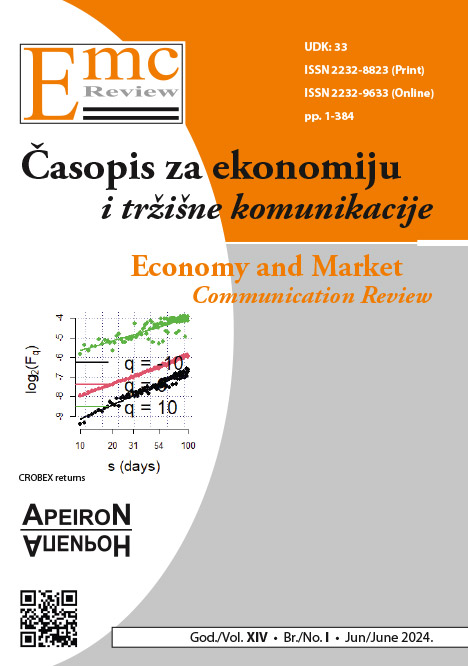GLOBAL TRENDS IN ROAD TRANSPORT MANAGEMENT AND THEIR IMPACT ON SUPPLY CHAINS
DOI:
https://doi.org/10.7251/EMC2401320DJKeywords:
management, road transport, global trends, supply chainsAbstract
As the world grapples with the challenges of a rapidly changing global landscape, the road transport industry is facing unprecedented pressures. With the increasing emphasis on sustainability, green agenda, and carbon neutrality by 2050, the industry is forced to adapt and innovate. This study aims to investigate the current state of the road transport industry, identify global trends, and analyze their impact on supply chains. The research is based on a comprehensive review of existing literature, as well as data from reputable sources such as the International Road Transport Union (IRU), ASTIC, and CEVA Logistics. The study employs a mixed-method approach, combining inductive and deductive methods, analysis and synthesis, abstraction and concretization, generalization and specialization, classification, description, compilation, and comparative methods. The research findings suggest that the road transport industry is facing significant challenges, including a shortage of drivers, lack of investment in infrastructure, and environmental concerns. The IRU’s Global Driver Shortage Survey 2023 highlights the severity of the issue, with over 4.7 million drivers needed to meet global demand. Furthermore, the lack of investment in infrastructure is a major concern, with many roads and highways in need of repair or upgrade. Despite these challenges, the study also highlights opportunities for innovation and growth, particularly in areas such as electric and autonomous vehicles, alternative fuels, and logistics optimization. The IRU’s report on “Green Logistics” emphasizes the importance of sustainable practices in the logistics industry, highlighting opportunities for reduction of greenhouse gas emissions through efficient route planning and mode selection. The study demonstrates that the road transport industry plays a critical role in global supply chains, connecting producers to consumers across the globe. As such, it is essential to address the challenges facing the industry and work towards a sustainable future. The results of this study provide valuable insights for policymakers, industry stakeholders, and researchers seeking to understand the complexities of the road transport sector. In conclusion, this study contributes to the ongoing debate on the future of road transport by providing a comprehensive analysis of global trends and their impact on supply chains. The findings highlight the need for innovative solutions and investment in infrastructure to ensure a sustainable future for the industry. By understanding the challenges and opportunities facing the road transport sector, we can work towards a more sustainable and efficient transportation system that benefits both individuals and society as a whole.
